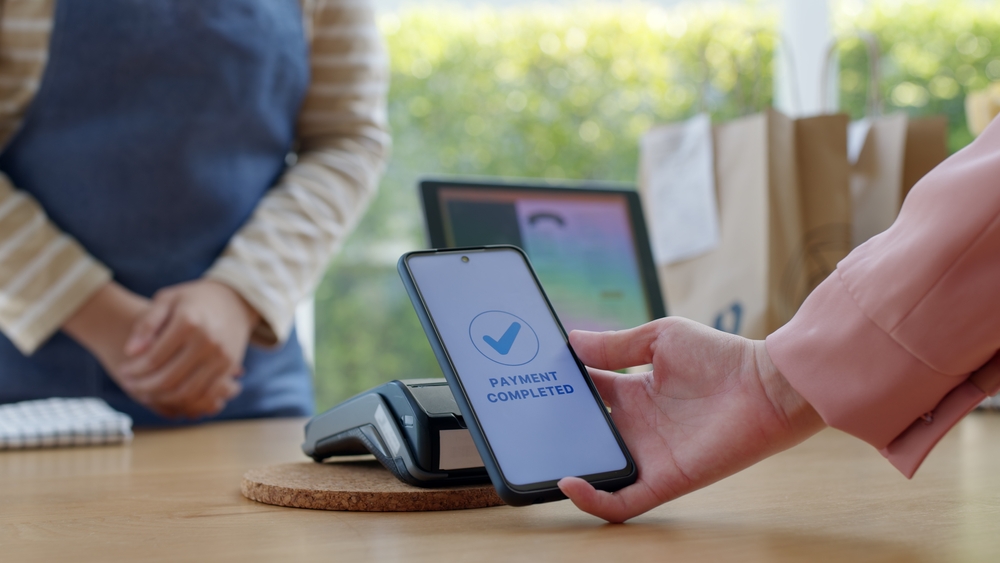Why Mobile Wallets Are On the Rise

The convenience of mobile wallets has made them mainstream. Instead of fumbling for cash or cards, you can pay with a quick tap or scan. Many mobile wallets also offer features like rewards, budgeting tools, and instant access to digital receipts. Combine that with added security—such as biometric authentication—and mobile wallets provide an experience that’s hard to beat.
Globally, mobile wallet transactions reached over £3 trillion last year and are projected to rise steadily. Digital payments are expanding beyond high-income regions, and even markets with cash-heavy histories are adopting them. With more merchants accepting digital payments and fewer requiring cash, it’s easier than ever to skip the cash altogether.
The Advantages of a Cashless Society
Going cashless has some clear benefits. For one, digital payments make transactions fast and simple, and mobile wallets add another layer of security. You can track spending in real-time, which is harder to do with cash. Some mobile wallets even include budgeting tools that let you set spending limits and track categories, helping people manage money more effectively.
For businesses, going cashless means fewer expenses related to handling cash and reduced theft risks. Governments also benefit from digital transactions, which are easier to track and regulate. This helps curb the shadow economy and ensures that more transactions are above board.
Will Cash Be Gone by 2030?
The shift towards mobile wallets and digital payments makes it tempting to predict that cash will disappear entirely by 2030. However, there are barriers. Despite growth in digital payments, cash remains crucial in many places. In the UK, around 17% of transactions were still done in cash last year, with the figure higher in rural areas or among older populations who may be less comfortable with mobile technology.
There’s also the issue of inclusivity. Not everyone has access to a smartphone or reliable internet. For people without bank accounts or digital access, cash is a necessity. If cash were eliminated too soon, these individuals could be left out of the financial system altogether.
Security and Privacy Concerns
Mobile wallets offer strong security features, like encryption and biometrics, but they’re not immune to risks. Mobile payments are vulnerable to data breaches, phishing, and malware, making some people wary of fully adopting them. Cash, on the other hand, provides privacy and independence from digital monitoring, which some people value.
In countries where governments closely monitor digital transactions, privacy becomes a valid concern. Mobile wallets leave a digital footprint that some may prefer to avoid, especially for sensitive purchases or personal spending. This preference for privacy could keep cash in circulation longer than expected.
Innovations That Could Make Cash Obsolete
New technologies could make cashless payments more accessible to everyone. For example, some companies are exploring offline digital payments, where users can make transactions even without internet access. These innovations could make mobile wallets viable in remote or underserved areas, potentially overcoming a significant barrier to a fully cashless society.
Blockchain and cryptocurrency technology are also evolving, with some digital wallets now integrating crypto payments. Cryptocurrencies offer an alternative to traditional cash by providing a decentralised and, in some cases, anonymous way to make transactions.
What a Cashless Society Would Mean
If mobile wallets do replace cash by 2030, we could see some major shifts. Banking would become entirely digital, likely increasing the need for financial literacy and digital security skills. Budgeting could become more efficient as mobile wallets incorporate better personal finance tools.
However, a fully cashless society could also mean more dependence on digital infrastructure. Power outages or network failures could impact daily transactions on a larger scale, and cyber threats could pose serious risks to financial stability. For those who value anonymity in transactions, a cashless society may also raise concerns around data privacy and surveillance.
So, Will Cash Disappear?
While mobile wallets and digital payments are on track to become the norm, cash likely won’t vanish by 2030. Cash will still play a role for those who value privacy, face technological barriers, or prefer traditional payment methods. However, mobile wallets will likely dominate in most sectors, making cash a secondary option rather than the mainstay it once was.
As digital payment options grow, individuals and businesses alike will continue to adjust. The trend suggests that by 2030, we’ll be much closer to a cashless society—just not entirely cash-free.

Leave a Reply
You must be logged in to post a comment.